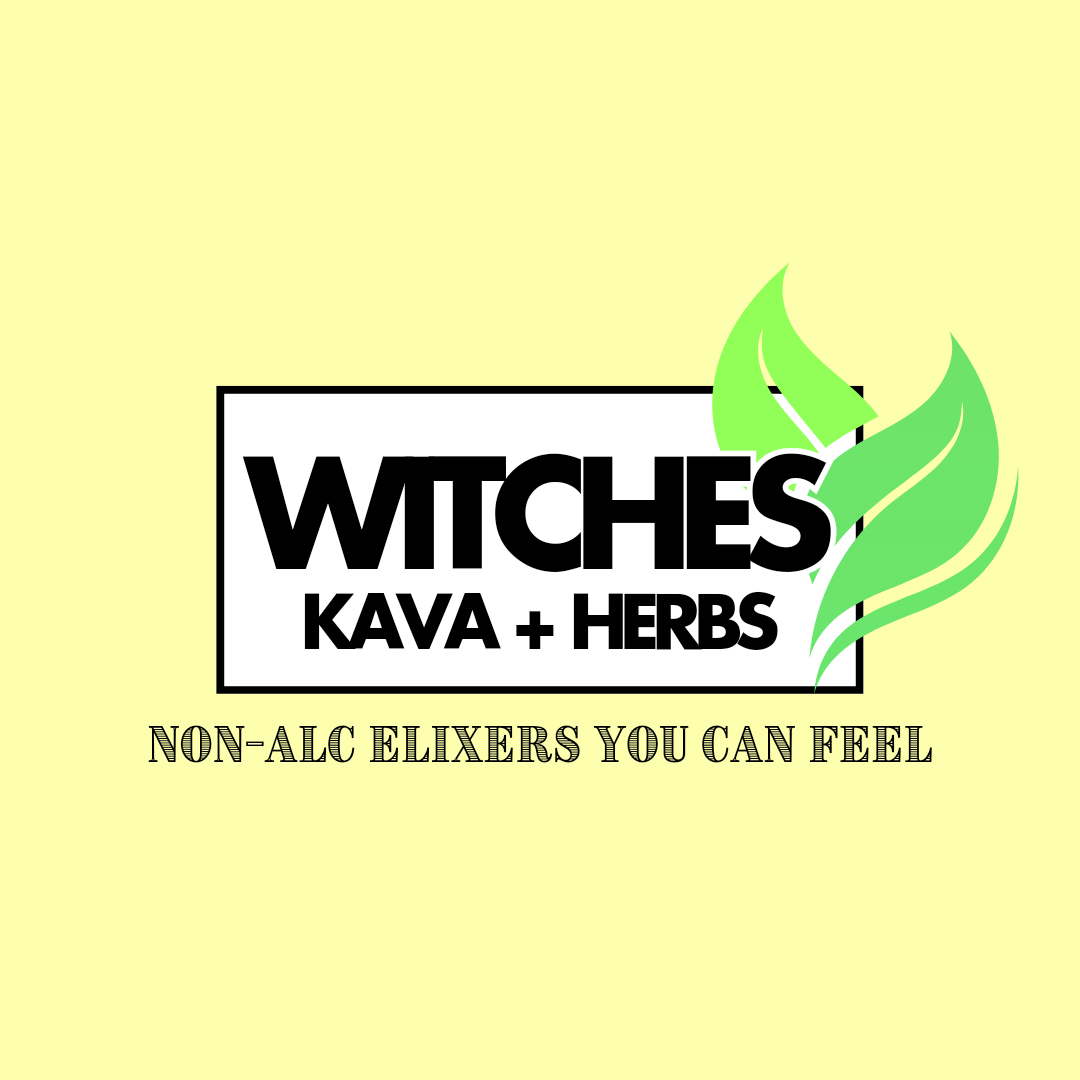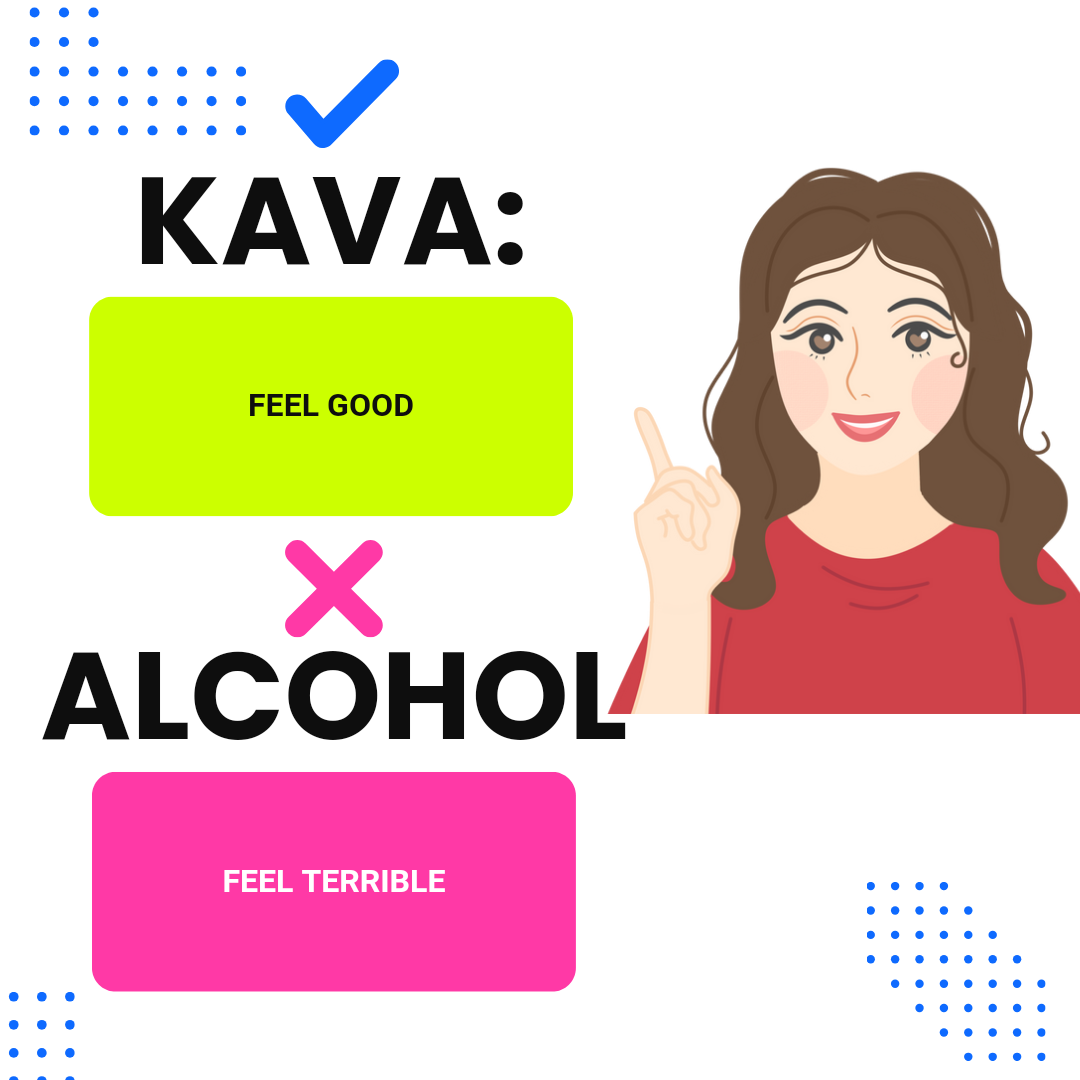Why Kava is Better than Alcohol: A Healthier Alternative for Relaxation
Kava has been used for centuries in ceremonies and social gatherings. While both kava and alcohol can produce calming effects, kava offers several distinct advantages over alcohol in terms of health, mood, and social wellbeing. Here's why kava is increasingly being seen as a better option than alcohol. Did you know? Kava hits the same receptors in the body that alcohol does, alcoholics say it helps get them off the hard stuff! But there is alot of benefits along with the fun, read below…
1. Kava Promotes Social Lubricant Without Motor Function Impairment
One of the primary reasons people drink alcohol is to unwind and relax. However, alcohol's effects are often accompanied by cognitive impairment, loss of coordination, and slurred speech. In contrast, kava promotes a state of calm and relaxation without impairing mental clarity. People report feeling relaxed but still sharp and in control after drinking kava. This makes it ideal for those who want to de-stress without the foggy effects of alcohol.
2. No Risk of Hangovers
Anyone who has had a few too many drinks knows the toll alcohol can take the next day. Hangovers—characterized by headaches, nausea, fatigue, and dehydration—are the body's reaction to alcohol's toxic effects. Kava, on the other hand, does not dehydrate the body or disrupt sleep cycles in the same way alcohol does. Kava drinkers can wake up feeling refreshed, without the dreaded hangover, making it a far more appealing choice for people who want to enjoy themselves without paying for it the next morning.
3. Kava is Non-Addictive
Alcohol carries a significant risk of addiction. Alcohol can lead to a host of physical and mental health problems, including liver disease, cognitive decline, and even death in severe cases. Kava, however, is considered non-addictive. It does not create a physical dependence in users, even with regular consumption. This makes it a safer long-term option for those who might otherwise turn to alcohol as a coping mechanism for stress or anxiety. Some say kava will even offer improved mental well-being.
4. Fewer Health Risks
Chronic alcohol consumption is associated with numerous serious health issues, including liver damage (cirrhosis), cardiovascular disease, and increased cancer risk. While kava used to have the WHO saying that consumption poses risks, particularly to the liver, They have now rescinded their statements after further research. Just in 2024 the WHO (World Health Organization) released a statement saying kava is actually NOT a risk to the liver. Moderate kava use is generally considered safer than heavy alcohol use. All things are good in moderation. Kava’s active compounds, known as kavalactones, interact with the brain’s neurotransmitters to reduce anxiety and stress without causing the wide range of bodily harm associated with alcohol.
5. Kava is Calorie-Free
Alcohol is high in empty calories, meaning it adds calories to your diet without providing any nutritional benefits. This is one reason why frequent alcohol consumption is linked to weight gain and metabolic issues. In contrast, kava contains virtually no calories, making it a guilt-free choice for those looking to relax without sabotaging their diet or contributing to weight gain.
6. Improves Sleep Without Disruption
Although alcohol is commonly used as a nightcap to induce sleep, it actually disrupts the natural sleep cycle, leading to poorer quality rest. Alcohol affects REM sleep, the deepest and most restorative stage of sleep, which can leave you feeling tired even after a full night’s sleep. Kava, on the other hand, promotes relaxation and reduces anxiety, helping you fall asleep more easily while preserving your sleep cycles, resulting in better overall rest.
7. Cultural and Social Benefits
Kava has deep cultural roots in the Pacific Islands, where it is used in social gatherings, ceremonies, and as a way to foster community bonds. Its consumption is often associated with a sense of unity and mindfulness, with a slower pace than typical alcohol-centered gatherings. Unlike alcohol-fueled parties that can sometimes lead to rowdy or reckless behavior, kava-drinking environments are often calm, introspective, and socially inclusive. It encourages meaningful conversation and connection without the risk of confrontation or aggression that can sometimes arise with alcohol consumption.
8. Legal and Safe to Drive
One of the biggest concerns with alcohol consumption is the risk of impaired driving, which can lead to accidents, injury, and fatalities. Drinking alcohol impairs judgment and coordination, making driving dangerous and illegal. In contrast, moderate consumption of kava does not impair cognitive function or motor skills in the same way, making it a safer alternative for those who may need to drive after drinking. While it is always best to be cautious, kava does not present the same immediate dangers on the road as alcohol does.
Conclusion
Kava is an excellent alternative to alcohol for those looking for relaxation and social enjoyment without the negative side effects. It offers a range of benefits, from mental clarity and calmness to better sleep and fewer health risks. While both kava and alcohol have their place, the growing awareness of kava's advantages—non-addictiveness, absence of hangovers, and fewer long-term health concerns—makes it a more appealing option for those seeking a healthier lifestyle. As more people explore kava’s potential, it may well become the drink of choice for those who want to unwind without the adverse consequences associated with alcohol consumption.
If you want to try a safe quality kava there is a few options here: witcheskava.com

